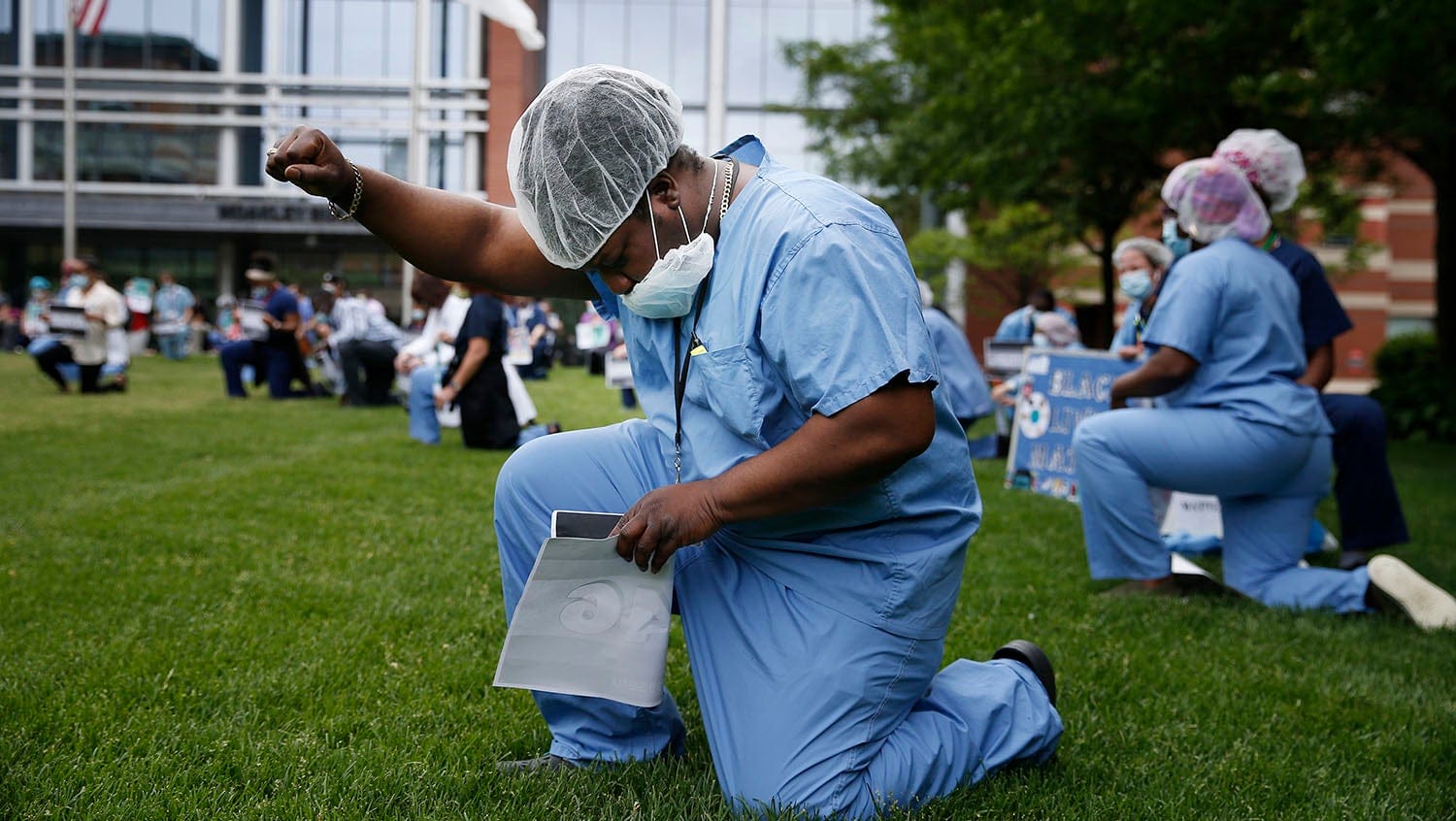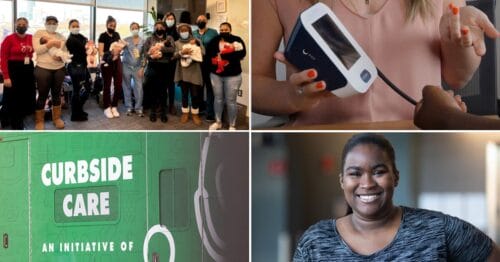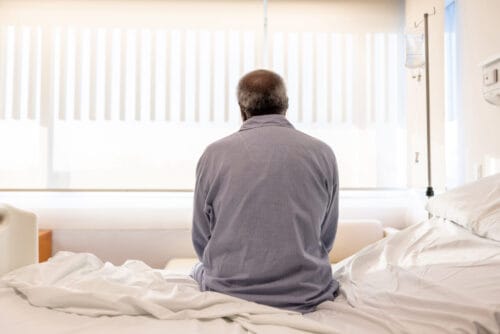A New Initiative Speaks to Healthcare's Crucial Role in Racial Justice Reform
March 25, 2021
By Meryl Bailey

Boston Globe, Getty Images
The Partnership for Behavioral Health and Racial and Social Justice will offer antiracist training to police and create new healthcare pathways for those at-risk.
Nationwide protests over the deaths of Black Americans at the hands of police have led to intense scrutinization of law enforcement policies across the country. In Massachusetts, lawmakers took emergency action on police reform through the new “Act Relative to Justice, Equity and Accountability in Law Enforcement in the Commonwealth,” signed into law by Governor Charlie Baker in December. The new law lays the groundwork to ideally develop a police force with more transparency, less use of force, and more representation from the community it serves.
Now, healthcare workers are stepping in to further support this critical step toward dismantling systemic racism within the state’s justice system. Boston Medical Center’s Boston Emergency Service Team (BEST) is establishing the Partnership for Behavioral Health and Racial and Social Justice. Collaborating directly with community institutions, such as the Boston Police Department (BPD), Boston Public Schools, and Boston’s court system, the new initiative will offer antiracist and implicit bias training to teach law enforcement officials, first responders, school safety officers, and other stakeholders how to appropriately respond on the ground.
BEST — a partnership between Bay Cove Human Services, North Suffolk Mental Health Association, Massachusetts General Hospital and the Massachusetts Behavioral Health Partnership and led by BMC — is a team that offers crisis response services that provide emergency mental health and behavioral healthcare to mostly underserved patients, aiming to prevent avoidable emergency department visits.
“We have such interface with the police and such involvement with the community and, as first responders and as Boston Medical Center, it makes sense to enhance what we are doing in the education and training and research spaces to address racial justice,” says Joan Taglieri, RN, MSN, director of clinical operations for BMC’s Emergency Services Program.
The initiative’s multidisciplinary approach in crisis management
Clinicians in BMC’s Center for Multicultural Mental Health will support BEST’s new effort through their expertise in crisis management and their specialization in trainings and consultations on diversity, equity, inclusion, and racial justice throughout the community. The Center has a 48-year history of conducting this type of work, which involves sequential training about multiculturalism and experiential exercises.
“This project brings together both elements of the center’s work in a unique way because we can provide both crisis intervention work and diversity and racial work and bring it together with a social justice orientation,” explains Shamaila Khan, PhD, program director of the Center for Multicultural Mental Health.
The new initiative will also focus on research. Thanks to a robust electronic medical record system, BEST has decades of data that the program hopes to synthesize to provide insight into people in crisis, reveal disparities in outcomes, inform policy, and improve outreach.
Healthcare’s essential role in racial justice reform
These new trainings to reduce profiling and bias are a natural progression of BEST’s work with the BPD.
According to the National Alliance on Mental Illness, a person is more likely to encounter police than get medical help during a behavioral health crisis. BEST aims to change that statistic by offering emergency support and alternative options for people with mental illness and substance use disorder (SUD) encountered by the criminal justice system.
As part of that mission, mental health clinicians ride alongside patrolling BPD police officers to advise and further de-escalate situations as part of BEST’s Police Co-Responder Program, and the team offers trainings on mental illness and SUD to community stakeholders to better inform response.
Similarly, the new BEST Partnership for Behavioral Health and Racial and Social Justice aims to prove that mental health providers have an essential role in supporting the state’s efforts in bias-free policing, reducing excessive force and wrongful arrest, and creating care pathways for people with serious mental illness that come into the system.
It’s also helping to break down silos in more traditional hospital services to better care for the community.
“It’s bringing multiple programs within BMC together in a thoughtful, coherent way,” emphasizes Khan. “Bringing together clinical providers, the Center for Multicultural Mental Health, and the research program to address these pressing issues that deeply impact the community we serve.”


